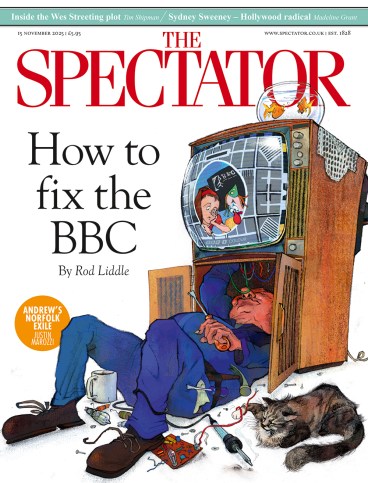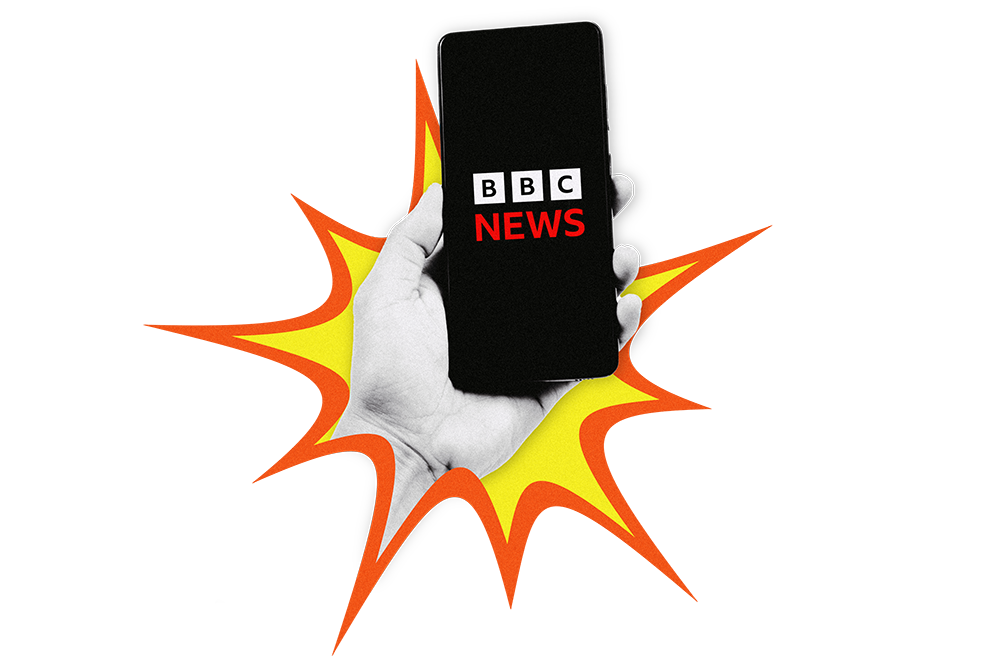
The most influential person in British media is not Rupert Murdoch or Lord Rothermere – it’s the editor who pushes out the BBC News app alerts. While many people gave up watching BBC News years ago, the corporation still dominates how millions receive their news, thanks to the app. Last year, it overtook Apple News to become Britain’s most-visited news app.
Whoever controls those push notifications has the power to make the phones of the app’s 14.2 million users buzz with notifications several times a day, providing a constant stream of news updates and reaching a far larger audience than that of any television news bulletin, newspaper or magazine.
Stories that flatter progressive orthodoxies are amplified; those that challenge them are sidelined
So how is this power used? I’ve analysed a year of alerts on the BBC News app, and there is a clear pattern: stories that flatter progressive orthodoxies are amplified, while those that challenge them are quietly sidelined.
The Israel/Gaza war unsurprisingly dominated coverage: 139 push notifications sent in the period mentioned Israel, while 55 referred to Hamas. Predictably, the notifications painted a relentlessly negative picture of Israel. Bulletins obsessively focused on Israel’s actions in the war. Many BBC Verify pieces sought to emphasise Israeli wrongdoing: e.g. ‘Israel levelling thousands of civilian buildings in Gaza in controlled demolitions, BBC Verify finds’ or ‘Watch: BBC Verify examines footage of Israeli strike on Gaza hospital, which experts say used “bunker buster” bombs’. There was not one comparable investigation pushed on the app about Hamas’s torrent of propaganda and misinformation.
On migration, which has regularly topped polls as the issue of highest salience for voters, the omissions are even starker. On 20 September it was reported that more than 1,000 people had crossed the Channel in a small boat in a single day. Many outlets led with the story. Not a word from the BBC in its alerts. Instead, millions were informed that ‘Strictly makes sparkling return as new series kicks off’.
What about Hadush Kebatu, the asylum seeker jailed for 12 months after sexually assaulting a woman and a 14-year-old girl in Epping? His trial was mentioned just twice, and then in the weakest of terms: ‘Man jailed for 12 months over sex assaults in Epping that led to protests outside asylum hotel.’ The protests outside the Bell Hotel, one of the dominant stories of this year, garnered very little attention from BBC push notification managers.
I could only find one reference to the murder of Rhiannon Whyte, who was stabbed multiple times with a screwdriver by Deng Chol Majek, an asylum seeker staying at the hotel in Walsall where she worked.
Millions rely on the BBC’s notifications to quickly establish the news of the day. What they receive is a curated summary of narrow interest. They will learn that ‘RuPaul’s Drag Race UK star James Lee Williams, known as The Vivienne, dies aged 32’ and that Donald Trump is planning on ‘Ditching climate deal, pardons for Capitol riot defendants and a TikTok reprieve’. They’ll find a stream of notifications informing them which women’s sports transgender women are and are not allowed to compete in.
What they will find lacking is coverage of the rise of anti-Semitism in Britain (one notification). Protests outside of asylum hotels will barely be explained. Nigel Farage and Reform won’t get a fair hearing – trumped instead by an obsession with Gaza. Our national broadcaster deemed The Traitors to be more important than knife crime, the murder of a hotel worker and the collapse of Keir Starmer’s one-in, one-out deal with France. Subscribers to BBC push notifications learn nothing of the day’s events, and everything of a niche, siloed worldview completely out of touch with reality.








Comments